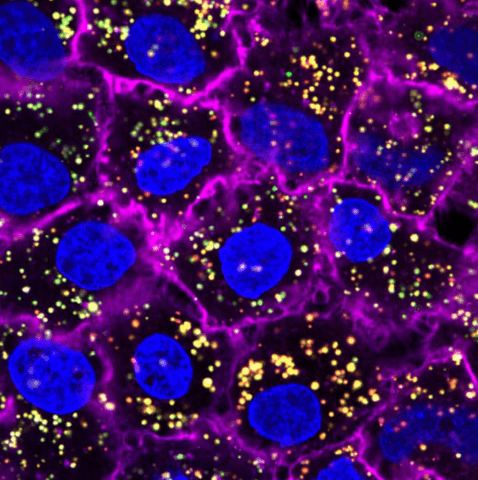An international group of scientists has reported on a technique to kill cancer cells in mice using a combination of immunotherapy and nano-particles of copper oxide.
The group is made up of researchers from the universities of Leuven, Bremen in Germany and Ioannina in Greece, as well as the Leibnitz Institute for Materials Engineering, also in Bremen. Their results are published in English in the journal Angewandte Chemie.
The body’s own immune system is being used more and more often in medical treatments for cancer, but not always successfully.
The team discovered that cancer cells are very sensitive to nano-particles of copper oxides, which dissolve in the body and are fatal to the cancer cells. However, using copper oxide particles alone did not prevent the cancer from returning.
But when the nano-particles are coupled with the body’s own immune system, and found that not only were the cancer cells killed, the body’s immune system “learned” to attack cancer cells on its own, and they were never able to re-establish. To test the result, after treatment with the reinforced immune cells, the team re-injected cancer cells into the now-healthy mice. The immune system in the mice was now able to recognise the cancer, and it was wiped out before it had a chance to take hold.
The team argues that the technique could be effective in a range of different cancers – those caused by a mutation in the tumour protein TP53. Those include forms of cancer of the breast, lung, ovary and colon.
“As far as I can tell, this is the first time that metal oxides have been used to fight cancer cells effectively in living models,” commented Professor Stefaan Soenen of the department of imaging and pathology of the KULeuven. “Now we want to look at other metal nano-particles and identify which particles influence which types of cancer. That would result in an extensive database.”
The team now plans to test cancer cells based on tissue taken from cancer patients. If the results are as positive, Prof. Soenen plans to set up a clinical trial using human subjects.
“Nano-medicine is becoming more and more popular in the US and Asia, but Europe is falling behind. It is a challenge to achieve progress, since physicians and engineers often speak a different language. We need more inter-disciplinary cooperation, to allow us better to understand each other, and to build upon each other’s knowledge.”
Alan Hope
The Brussels Times

